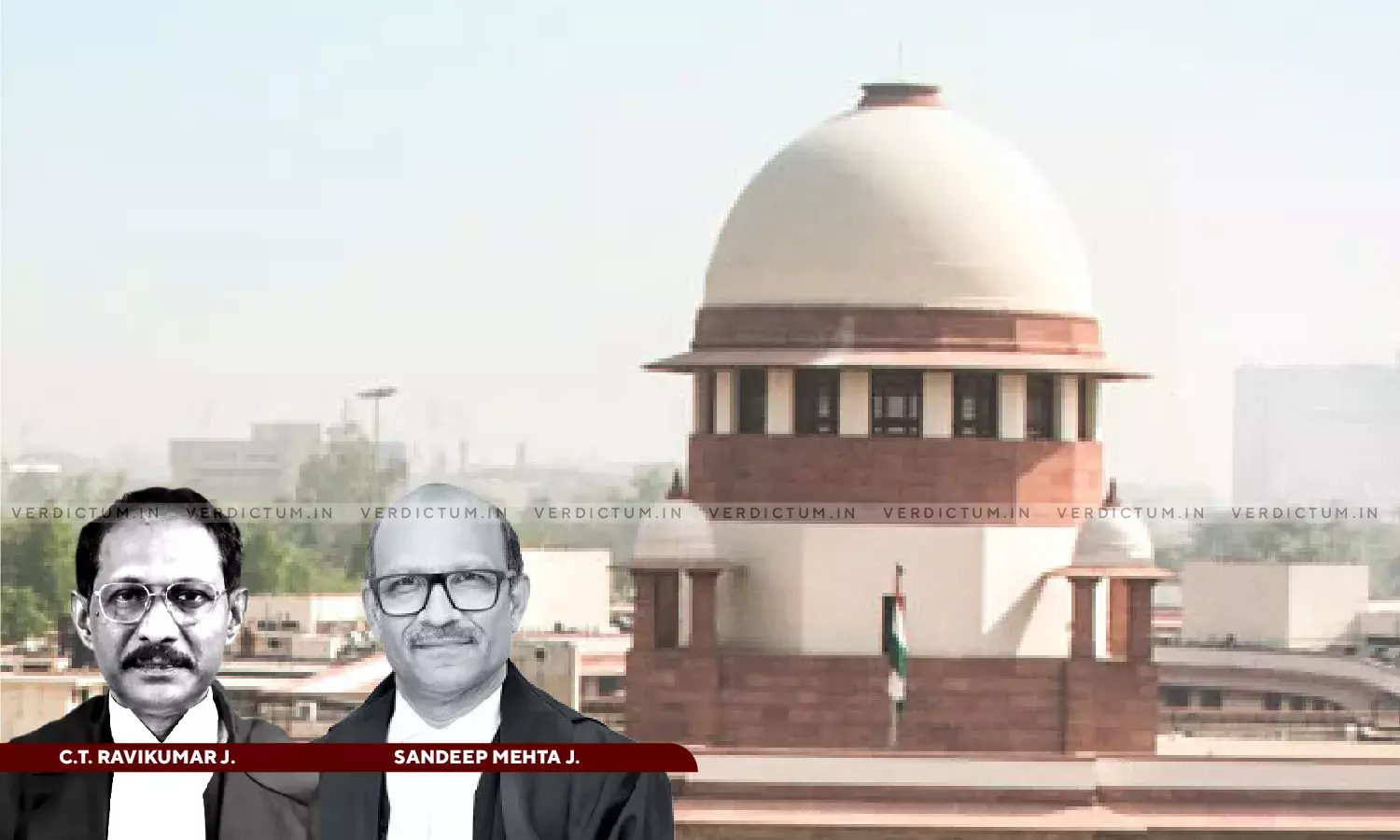Police Can Never Be Allowed To Interfere With Possession Of Immovable Property In Civil Disputes: Supreme Court Sets Aside Bail Condition
The Supreme Court set aside a bail condition imposed on the accused observing that the police cannot be allowed to interfere with the possession of an immovable property in a civil dispute.
The Madhya Pradesh High Court had imposed a bail condition directing the removal of a wall at the expense of the accused and also directed the State of Madhya Pradesh to hand over the possession of the disputed property to the complainant. The Apex Court, while setting aside this condition, reiterated its decision in Mahesh Chandra v. State of U.P. (2006) wherein it was held that while deciding a bail application, it is not the jurisdiction of the court to decide civil disputes between the parties.
A Bench of Justice C.T. Ravikumar and Justice Sandeep Mehta held, “We find that while the Second Bail application of the appellants was under consideration, it was the police who took possession of the keys of the immovable property under an alleged voluntary application filed by the Mahant of Ram Suchi Sampradaya. We believe that this action by the police to take possession of immovable property reflects total lawlessness. Under no circumstances, can the police be allowed to interfere with the possession of immovable property, as such action does not bear sanction by any provision of law.”
The accused had challenged the bail conditions imposed by the High Court. It was submitted before the Court that the keys to the disputed property were handed over to the Police by one of the complainants.
The Supreme Court had to determine whether the High Court exceeded its jurisdiction under Section 439 of the CrPC by imposing “onerous and unreasonable conditions” unrelated to the grant of bail.
The Bench emphasised that the fundamental purpose of bail was to ensure the accused's presence during the investigation and trial and therefore, the conditions imposed must be reasonable and directly related to that objective.
Referring to its decision in Sumit Mehta v. State (NCT of Delhi) [2013], the Court reiterated, “Any condition has to be interpreted as a reasonable condition acceptable in the facts permissible in the circumstance and effective in the pragmatic sense and should not defeat the order of grant of bail.”
“This Court has consistently emphasised that the Court's discretion in imposing conditions must be guided by the need to facilitate the administration of justice, secure the accused's presence, and prevent the misuse of liberty to impede the investigation or obstruct justice,” the Bench remarked.
The Court noted that it was the police who took possession of the keys of the immovable property under an alleged voluntary application filed by the Mahant of Ram Suchi Sampradaya.
“We conclude that the High Court has clearly exceeded its jurisdiction…by imposing the conditions of demolishing the wall at the expense of the appellants and handing over the possession of the disputed property to the complainant,” the Bench observed.
Consequently, the Court held, “The conditions imposed clearly tantamount to deprivation of civil rights, rather than measures to ensure the accused's presence during trial. Therefore, the conditions imposed by the High Court…are hereby set aside.”
Accordingly, the Supreme Court allowed the appeal.
Cause Title: Ramratan @ Ramswaroop & Anr. v. The State Of Madhya Pradesh (Neutral Citation: 2024 INSC 826)
Appearance:
Senior Advocates Nachiketa Joshi and Puneet Jain; AOR Pashupathi Nath Razdan, Mrinmoi Chatterjee and Christi Jain; Advocates Kushagra Singh, Ajay Sharma, Varun Dev Mishra, Kirti Lal, Ritvik Mishra, Arun Arora, Mann Arora, Akriti Sharma, Harsh Jain, Om Sudhir Vidyarthi, Ojusya Joshi and Chhaya Kirti




